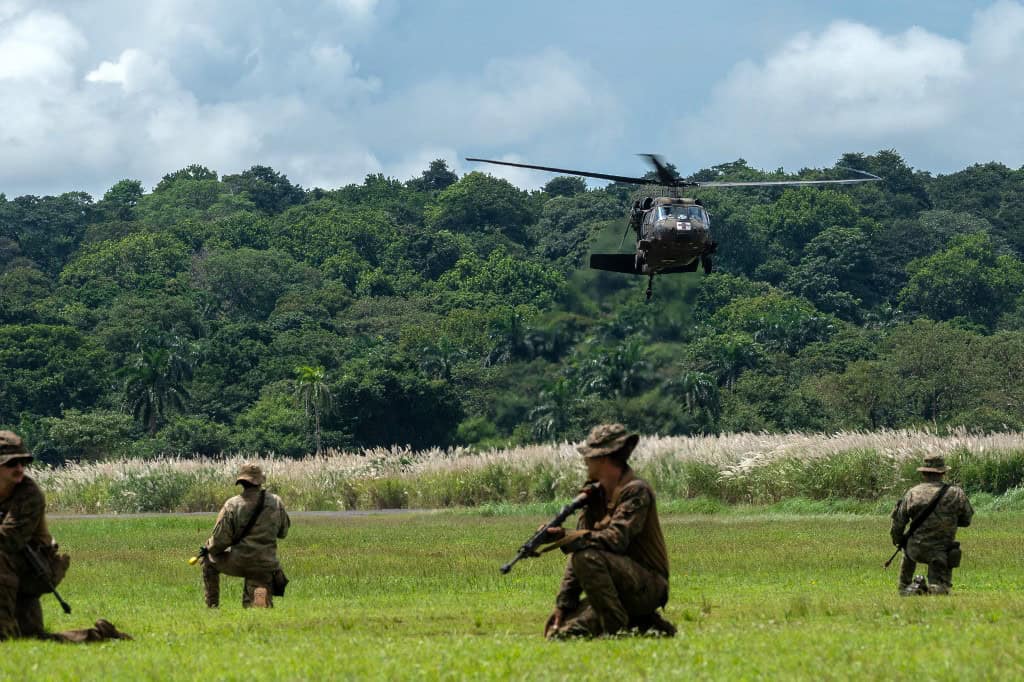Political Tensions: Panama Denies US Military Exercises Target Venezuela

Panamanian and US military personnel take part in a survival maneuver training led by the United States Army at the Jungle School in the former US military base Sherman in Colon, Panama.
Panama’s president Mulino says that ongoing US military exercises within the country carry no hostile intent toward Venezuela. The declaration comes amid rising regional tensions and speculation over American troop movements in Central America. Officials in Panama City clarified that the training involves around 50 US Marines operating in the Caribbean region’s dense jungle areas. The exercises, which ran from October 9 to 29, focus on survival tactics and combat skills in challenging terrains. A US defense official emphasized that the program, which started earlier this year, marks the first such ground force deployment to Panama in decades but holds no connection to potential operations in Venezuela.
The Pentagon confirmed the initiative aims to build troop readiness in harsh environments, not to prepare for any specific regional conflict. This follows reports of US forces conducting maneuvers in Panama’s selva (a tract of land covered by dense equatorial forest), a move that has drawn attention due to its timing. Venezuela, meanwhile, has responded with its own military activities. Venezuelan Defense Minister Vladimir Padrino López announced exercises to signal the nation’s preparedness against what he called “imperialist aggression.” The statement aired on state television as a US aircraft carrier positioned itself near Venezuelan waters, heightening concerns over possible escalations.
The backdrop includes broader US military presence in the area, evoking memories of past interventions like the 1989 Panama invasion. Analysts note that current deployments stem from standard training protocols rather than direct threats. Panama, which regained full control of the Panama Canal in 1999, maintains neutral relations with both the US and Venezuela, prioritizing its sovereignty. Local groups in Panama have voiced opposition to increased US military activity, arguing it risks the security of key infrastructure like the interoceanic canal. Protests earlier this year highlighted fears that foreign bases could draw the country into external disputes.
Despite these concerns, Panamanian authorities insist the exercises comply with bilateral agreements and pose no risk to neighboring states. The US Southern Command, overseeing operations in Latin America, described the drills as routine cooperation to enhance interoperability. Venezuelan officials have accused the US of provocative actions, pointing to the carrier’s proximity as evidence of encirclement. Maduro’s administration continues to face international scrutiny over domestic issues, including recent elections, which have strained ties with Washington. As both nations monitor each other’s moves, diplomats call for dialogue to ease strains. Panama’s stance underscores its commitment to regional stability, avoiding entanglement in the US-Venezuela rift.





